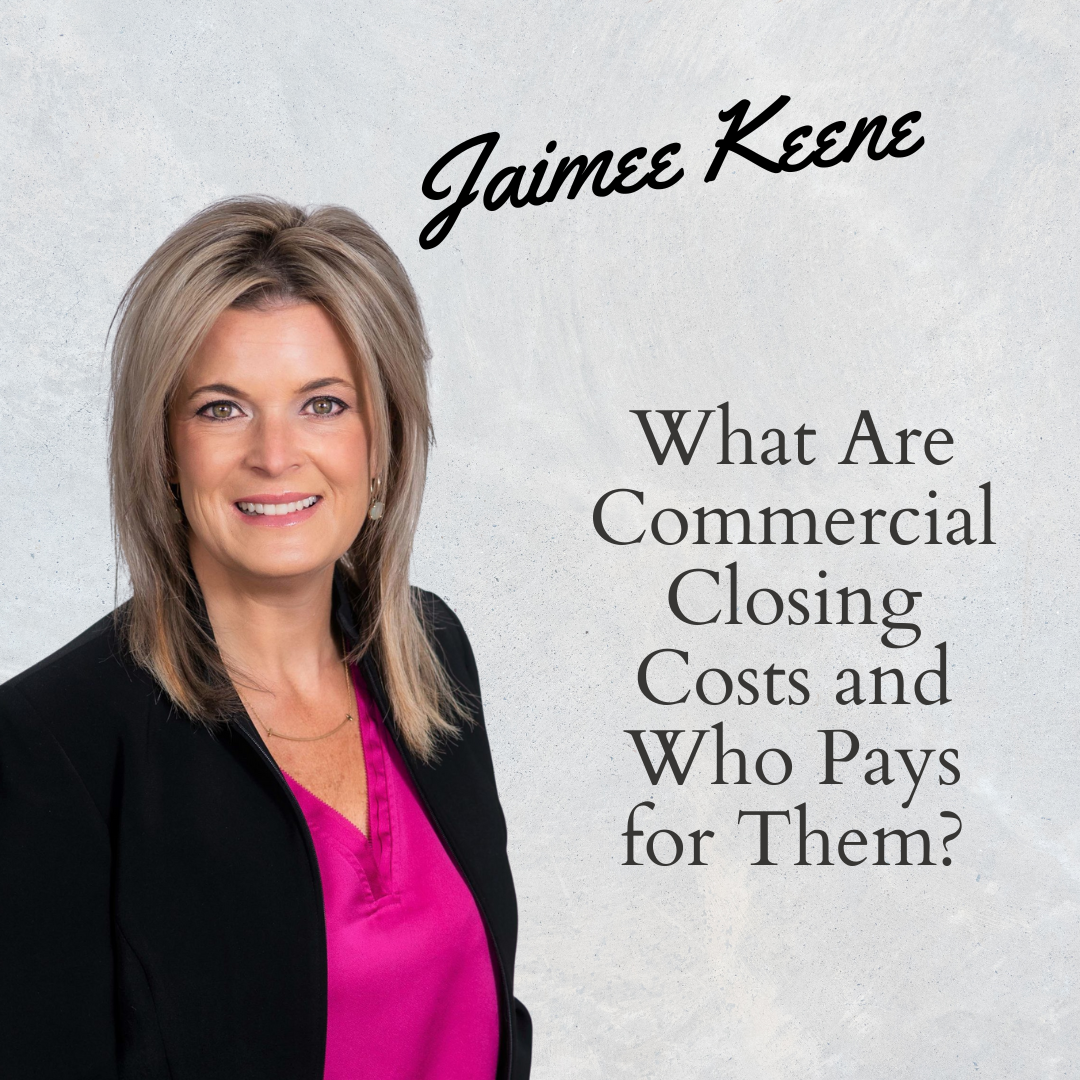Considering purchasing or selling a commercial property? It’s helpful to understand the closing costs associated with the transaction. A little knowledge upfront will help prepare buyers and sellers for closing day. Benchmark’s Jaimee Keene has put together a list of information for your future commercial purchase/ sale.
Closing Costs – What are They?
Closing costs are the fees paid for services that are needed to complete the sale of a commercial property. This could be an office, industrial, or retail property, or alternatively a piece of land for commercial development. Most of these costs become due when the buyer’s funds are received as payment for the property, and both parties have signed the transaction closing documents, usually on closing day, facilitated by the title company or a competent real estate attorney. Some transaction expenses, such as appraisal, environmental, and inspection reports, are incurred during the transaction, and may be paid prior to closing based on agreements with the vendors providing the services.
Commercial Transaction Costs
Commercial property transactions typically include the following items.
Property appraisal. The asking price for a commercial property can be tricky to figure out, and a professional real estate appraiser can be a big help in this process. Often, you might pay around $4,000-$5,000 for an average-sized commercial property appraisal, but this can be more for larger buildings or lots, or complex specialized properties. This is often paid for by the buyer, but this can be negotiated between buyer and seller.
Property inspection. Both a seller and buyer of a commercial property can have their own licensed commercial inspection performed to address any concerns about issues with a property’s condition. This can help with pricing and negotiations. The scope of the inspections can vary widely, as do the costs. Prudent buyers should be prepared to pay for inspections at their own cost, while prudent sellers may also want to have the property evaluated prior to listing the property to prepare them for any deferred maintenance items that may arise during a buyer’s inspection.
Property repairs. Generally, property repairs consist of issues such as mechanical systems, roof, or site improvements (including parking lots, landscaping, drainage, etc.) or problems in the building’s exterior and common areas. The inspection report will help to identify any items of deferred maintenance, and the buyer and seller can use these repair costs in the negotiation of price or credits at closing.
Marketing expenses. When selling a commercial property, a seller will incur costs to market the property. If working with a competent listing broker who will market the property on behalf of the seller, these expenses can be included in the agent/broker’s negotiated commission rate. These expenses include photography, drone photography/video, virtual tours, marketing materials, and listing fees on commercial MLS platforms. Premiums can be paid by the Seller to the listing brokerage for enhanced marketing efforts, including increased exposure on listing websites.
Commercial Closing Costs
Other commercial property closing costs include:
• Agent/broker commission. The average commercial property commission is about 4-8%. This varies widely based on the expected sale price, and can include the commission paid to both the listing broker and the broker representing the buyer.
• Outstanding property debt – this can include any outstanding balances, prepayment penalties, and pro-rated interest amounts. The existing lender will provide a payoff quote with these items based on a specific closing date, and this amount is subject to changes if the closing date changes.
• Title or other selling fees
• Pro-rated real estate taxes
• Closing fees
• Transfer fees for utilities
• Transfer taxes for local municipalities
• Title Insurance
Here is a list of common commercial closing costs along with who typically pays for them.
Real estate broker commission fees- Seller
Property appraisal fees- Buyer
Property inspection fees- Buyer
Property repairs- Seller
Marketing expenses- Seller
Outstanding debt- Seller
Title or other closing fees- Buyer & Seller




